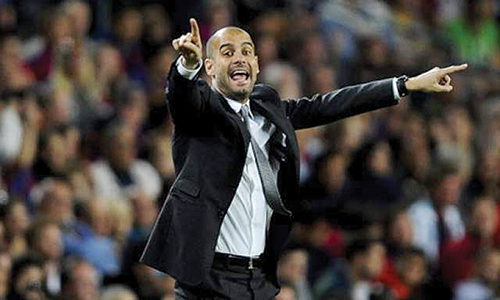A few weeks before Manchester United wrapped up another English Premier League title, Sir Alex Ferguson announced that he was resigning from his managerial duties after more than a quarter century leading the Red Devils.
Premier League condottieri

A few weeks before Manchester United wrapped up another English Premier League title, Sir Alex Ferguson announced that he was resigning from his managerial duties after more than a quarter century leading the Red Devils. Ferguson, who took over the Manchester United post in 1986, hoisted 38 trophies during his run with one of the world’s most famous squads. In the process, the Scottish septuagenarian became as synonymous with the Manchester United identity as their Old Trafford stadium or the red jerseys that inspired their nickname.
Ferguson’s departure marked not only the end of an era in Manchester, but the end of an era for coaches like him. There’s a new generation of soccer managers taking over the landscape now, for whom an illustrious appointment at a club like Manchester United is merely a way station on an ongoing campaign for individual glory. They are the modern mercenaries of elite-level soccer, the condottieri in charge of the most lucrative brands in the sport.
On May Day, the Barcelona squad formerly led by manager Pep Guardiola was knocked out of the Union of European Football Associations Champions League by Bayern Munich. Guardiola stepped down last year from the club he had managed through four dominant seasons and the place where he spent the bulk of his playing career as a defensive anchor in the midfield. Starting this summer, he’ll be in charge of a new team: Bayern Munich.
And Guardiola isn’t even the only high-profile resignation at a Premier League Spanish club this season. Jose Mourinho, the well-traveled Portuguese coaching legend, recently decided to end his tenure with Real Madrid in favor of a likely return to English contender Chelsea next year. Like Guardiola’s move, the announcement made plenty of headlines, even if shakeups like these don’t necessarily qualify as news anymore. Coaches are no longer interested in lasting legacies with one squad, and are always remaining on the lookout for the batch of superstars they’ll manage next.
Mourinho now chases the dream of becoming the first manager in history to win the UEFA Champions League with three different teams, and Guardiola is leaving Barcelona to try to prove he can achieve the same transcendent results with another legendary club. But whatever they might say to the press, the change of address certainly isn’t about the challenge—after all, you will never see Mourinho, Guardiola or any of their contemporaries lowering themselves to manage less-glamorous clubs like Atletico Madrid or TSV 1860 Munich or West Ham United.
No, putting down roots and establishing an institution with a club is simply too passe now, a concept belonging to a past generation that has no relevance in professional soccer anymore. The days when men like Alex Ferguson were afforded the time to create a champion, to nurture a system and to sustain it decade after decade are over. Time is of the essence in the modern game, and the new career arc for soccer managers is a blitzkrieg from city to city and powerhouse to powerhouse, condottieri constantly on the move for their next big score.




